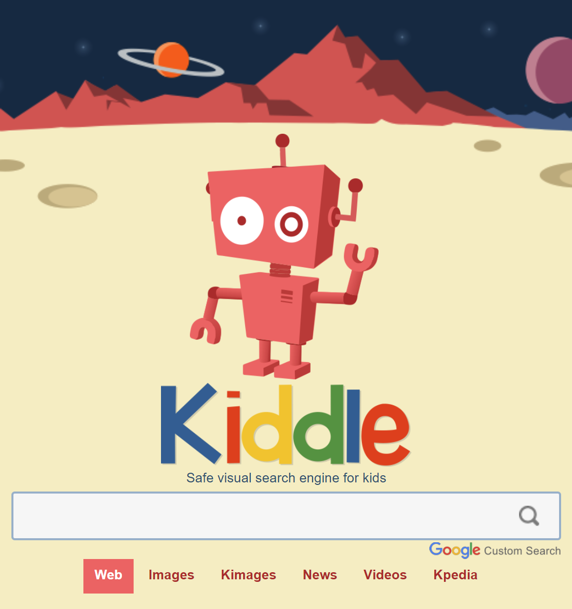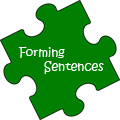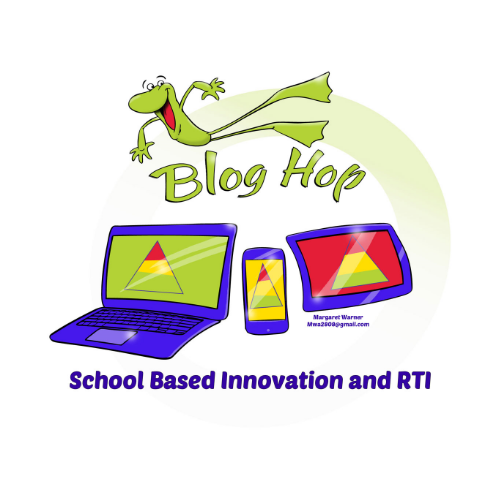 In my therapy sessions I spend a significant amount of time improving literacy skills (reading, spelling, and writing) of language impaired students. In my work with these students I emphasize goals with a focus on phonics, phonological awareness, encoding (spelling) etc. However, what I have frequently observed in my sessions are significant gaps in the students’ foundational knowledge pertaining to the basics of sound production and letter recognition. Basic examples of these foundational deficiencies involve students not being able to fluently name the letters of the alphabet, understand the difference between vowels and consonants, or fluently engage in sound/letter correspondence tasks (e.g., name a letter and then quickly and accurately identify which sound it makes). Consequently, a significant portion of my sessions involves explicit instruction of the above concepts.
In my therapy sessions I spend a significant amount of time improving literacy skills (reading, spelling, and writing) of language impaired students. In my work with these students I emphasize goals with a focus on phonics, phonological awareness, encoding (spelling) etc. However, what I have frequently observed in my sessions are significant gaps in the students’ foundational knowledge pertaining to the basics of sound production and letter recognition. Basic examples of these foundational deficiencies involve students not being able to fluently name the letters of the alphabet, understand the difference between vowels and consonants, or fluently engage in sound/letter correspondence tasks (e.g., name a letter and then quickly and accurately identify which sound it makes). Consequently, a significant portion of my sessions involves explicit instruction of the above concepts.
This got me thinking regarding my students’ vocabulary knowledge in general. We, SLPs, spend a significant amount of time on explicit and systematic vocabulary instruction with our students because as compared to typically developing peers, they have immature and limited vocabulary knowledge. But do we teach our students the abstract vocabulary necessary for reading success? Do we explicitly teach them definitions of a letter, a word, a sentence? etc.
A number of my colleagues are skeptical. “Our students already have poor comprehension”, they tell me, “Why should we tax their memory with abstract words of little meaning to them?” And I agree with them of course, but up to a point.
I agree that our students have working memory and processing speed deficits as a result of which they have a much harder time learning and recalling new words.
However, I believe that not teaching them meanings of select words pertaining to language is a huge disservice to them. Here is why. To be a successful communicator, speaker, reader, and writer, individuals need to possess adequate metalinguistic skills.
In simple terms “metalinguistics” refers to the individual’s ability to actively think about, talk about, and manipulate language. Reading, writing, and spelling require active level awareness and thought about language. Students with poor metalinguistic skills have difficulty learning to read, write, and spell. They lack awareness that spoken words are made up of individual units of sound, which can be manipulated. They lack awareness that letters form words, words form phrases and sentences, and sentences form paragraphs. They may not understand that letters make sounds or that a word may consist of more letters than sounds (e.g., /ship/). The bottom line is that students with decreased metalinguistic skills cannot effectively use language to talk about concepts like sounds, letters, or words unless they are explicitly taught those abilities.
 So I do! Furthermore, I can tell you that explicit instruction of metalinguistic vocabulary does significantly improve my students understanding of the tasks involved in obtaining literacy competence. Even my students with mild to moderate intellectual disabilities significantly benefit from understanding the meanings of: letters, words, sentences, etc.
So I do! Furthermore, I can tell you that explicit instruction of metalinguistic vocabulary does significantly improve my students understanding of the tasks involved in obtaining literacy competence. Even my students with mild to moderate intellectual disabilities significantly benefit from understanding the meanings of: letters, words, sentences, etc.
I even created a basic abstract vocabulary handout to facilitate my students comprehension of these words (FREE HERE). While by no means exhaustive, it is a decent starting point for teaching my students the vocabulary needed to improve their metalinguistic skills.
For older elementary aged students with average IQ, I only provide the words I want them to define, and then ask them to look up their meanings online via the usage of PC or an iPad. This turns of vocabulary activity into a critical thinking and an executive functions task.
Students need to figure out the appropriate search string needed to in order to locate the answer as well as which definition comes the closest to clearly and effectively defining the presented word. One of the things I really like about Google online dictionary, is that it provides multiple definitions of the same words along with word origins. As a result, it teaches students to carefully review and reflect upon their selected definition in order to determine its appropriateness.
 A word of caution as though regarding using Kiddle, Google-powered search engine for children. While it’s great for locating child friendly images, it is not appropriate for locating abstract definition of words. To illustrate, when you type in the string search into Google, “what is the definition of a letter?” You will get several responses which will appropriately match some meanings of your query. However the same string search in Kiddle, will merely yield helpful tips on writing a letter as well as images of envelopes with stamps affixed to them.
A word of caution as though regarding using Kiddle, Google-powered search engine for children. While it’s great for locating child friendly images, it is not appropriate for locating abstract definition of words. To illustrate, when you type in the string search into Google, “what is the definition of a letter?” You will get several responses which will appropriately match some meanings of your query. However the same string search in Kiddle, will merely yield helpful tips on writing a letter as well as images of envelopes with stamps affixed to them.
In contrast to the above, I use a more structured vocabulary defining activities for younger elementary age students as well as students with intellectual impairments. I provide simple definitions of abstract words, attach images and examples to each definition as well as create cloze activities and several choices of answers in order to ensure my students’ comprehension of these words.
I find that this and other metalinguistic activities significantly improve my students comprehension of abstract words such as ‘communication’, ‘language’, as well as ‘literacy’. They cease being mere buzzwords, frequently heard yet consistently not understood. To my students these words begin to come to life, brim with meaning, and inspire numerous ‘aha’ moments.
Now that you’ve had a glimpse of my therapy sessions I’d love to have a glimpse of yours. What metalinguistic goals related to literacy are you targeting with your students? Comment below to let me know.

 Given the rising interest in recent years in the role of SLPs in the treatment of reading disorders, today I wanted to share with parents and professionals several reputable FREE resources on the subject of “dyslexia” in Russian-speaking children.
Given the rising interest in recent years in the role of SLPs in the treatment of reading disorders, today I wanted to share with parents and professionals several reputable FREE resources on the subject of “dyslexia” in Russian-speaking children. First up is the Report on the Russian Language for the World Dyslexia Forum 2010 by Dr. Grigorenko, the coauthor of the Dyslexia Debate. This 25-page report contains important information including Reading/Writing Acquisition of Russian in the Context of Typical and Atypical Development as well as on the state of Individuals with Dyslexia in Russia.
First up is the Report on the Russian Language for the World Dyslexia Forum 2010 by Dr. Grigorenko, the coauthor of the Dyslexia Debate. This 25-page report contains important information including Reading/Writing Acquisition of Russian in the Context of Typical and Atypical Development as well as on the state of Individuals with Dyslexia in Russia. Next up is this delightful presentation entitled: “If John were Ivan: Would he fail in reading? Dyslexia & dysgraphia in Russian“. It is a veritable treasure trove of useful information on the topics of:
Next up is this delightful presentation entitled: “If John were Ivan: Would he fail in reading? Dyslexia & dysgraphia in Russian“. It is a veritable treasure trove of useful information on the topics of: Now let us move on to the “The Role of Phonology, Morphology, and Orthography in English and Russian Spelling” which discusses that “phonology and morphology contribute more for spelling of English words while orthography and morphology contribute more to the spelling of Russian words“. It also provides clinicians with access to the stimuli from the orthographic awareness and spelling tests in both English and Russian, listed in its appendices.
Now let us move on to the “The Role of Phonology, Morphology, and Orthography in English and Russian Spelling” which discusses that “phonology and morphology contribute more for spelling of English words while orthography and morphology contribute more to the spelling of Russian words“. It also provides clinicians with access to the stimuli from the orthographic awareness and spelling tests in both English and Russian, listed in its appendices.
 Last week I wrote a blog post entitled: “
Last week I wrote a blog post entitled: “ Punctuation brings written words to life. As we have seen from countless of grammar memes, an error in punctuation results in conveying a completely different meaning.
Punctuation brings written words to life. As we have seen from countless of grammar memes, an error in punctuation results in conveying a completely different meaning. This explicit instruction of punctuation terminology does significantly improve my students understanding of sentence formation. Even my students with mild to moderate intellectual disabilities significantly benefit from understanding how to use periods, commas and question marks in sentences.
This explicit instruction of punctuation terminology does significantly improve my students understanding of sentence formation. Even my students with mild to moderate intellectual disabilities significantly benefit from understanding how to use periods, commas and question marks in sentences. This in turns becomes a critical thinking and an executive functions activity. Students need sift through quite a bit of information to find a website which provides the clearest answers regarding the usage of specific punctuation marks. Here, it’s important for students to locate kid friendly websites which will provide them with simple but accurate descriptions of punctuation marks usage. One example of such website is
This in turns becomes a critical thinking and an executive functions activity. Students need sift through quite a bit of information to find a website which provides the clearest answers regarding the usage of specific punctuation marks. Here, it’s important for students to locate kid friendly websites which will provide them with simple but accurate descriptions of punctuation marks usage. One example of such website is  In my therapy sessions I spend a significant amount of time improving literacy skills (reading, spelling, and writing) of language impaired students. In my work with these students I emphasize goals with a focus on phonics, phonological awareness, encoding (spelling) etc. However, what I have frequently observed in my sessions are significant gaps in the students’ foundational knowledge pertaining to the basics of sound production and letter recognition. Basic examples of these foundational deficiencies involve students not being able to fluently name the letters of the alphabet, understand the difference between vowels and consonants, or fluently engage in sound/letter correspondence tasks (e.g., name a letter and then quickly and accurately identify which sound it makes). Consequently, a significant portion of my sessions involves explicit instruction of the above concepts.
In my therapy sessions I spend a significant amount of time improving literacy skills (reading, spelling, and writing) of language impaired students. In my work with these students I emphasize goals with a focus on phonics, phonological awareness, encoding (spelling) etc. However, what I have frequently observed in my sessions are significant gaps in the students’ foundational knowledge pertaining to the basics of sound production and letter recognition. Basic examples of these foundational deficiencies involve students not being able to fluently name the letters of the alphabet, understand the difference between vowels and consonants, or fluently engage in sound/letter correspondence tasks (e.g., name a letter and then quickly and accurately identify which sound it makes). Consequently, a significant portion of my sessions involves explicit instruction of the above concepts. So I do! Furthermore, I can tell you that explicit instruction of metalinguistic vocabulary does significantly improve my students understanding of the tasks involved in obtaining literacy competence. Even my students with mild to moderate intellectual disabilities significantly benefit from understanding the meanings of: letters, words, sentences, etc.
So I do! Furthermore, I can tell you that explicit instruction of metalinguistic vocabulary does significantly improve my students understanding of the tasks involved in obtaining literacy competence. Even my students with mild to moderate intellectual disabilities significantly benefit from understanding the meanings of: letters, words, sentences, etc. A word of caution as though regarding using
A word of caution as though regarding using 








 Richie is an engaging 9 year old boy, who attends therapy to improve his language skills. He is compliant and cooperative in sessions and is eager to learn new information. There’s only one problem, Richie is unable to spontaneously ask questions and request clarification when he doesn’t understand the presented information. Oh, he’ll sit there quietly, intently looking at the therapist and making perfect eye contact. His entire body posture will scream at you “I am listening to you and I value what you have to say!” But when it comes to answering questions about what he’s just learned, Richie clearly doesn’t get it and has no clue on how to obtain it! He might attempt to answer the questions and stumble half way through before giving up. He might also provide a response completely unrelated to the presented question. But most of the time, much to your frustration, Richie will simply shrug his shoulders and reply “I don’t know”. This is typically when many graduate speech interns and CFs alike will ask him with barely disguised frustration: “Why didn’t tell me before you didn’t understand?” Richie will shrug his shoulders again. Oh, he is not trying to be oppositional, he really doesn’t know!
Richie is an engaging 9 year old boy, who attends therapy to improve his language skills. He is compliant and cooperative in sessions and is eager to learn new information. There’s only one problem, Richie is unable to spontaneously ask questions and request clarification when he doesn’t understand the presented information. Oh, he’ll sit there quietly, intently looking at the therapist and making perfect eye contact. His entire body posture will scream at you “I am listening to you and I value what you have to say!” But when it comes to answering questions about what he’s just learned, Richie clearly doesn’t get it and has no clue on how to obtain it! He might attempt to answer the questions and stumble half way through before giving up. He might also provide a response completely unrelated to the presented question. But most of the time, much to your frustration, Richie will simply shrug his shoulders and reply “I don’t know”. This is typically when many graduate speech interns and CFs alike will ask him with barely disguised frustration: “Why didn’t tell me before you didn’t understand?” Richie will shrug his shoulders again. Oh, he is not trying to be oppositional, he really doesn’t know! 